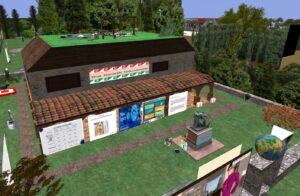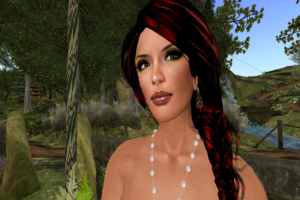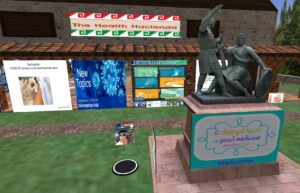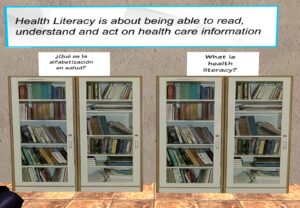
The current pandemic has shown us the real value of educating the public about how scientific principles are applied to practical matters. Social distancing, masks, vaccines, tracing via testing are all practical steps to take in preventing the spread of diseases and all are the product of scientific research. The steps in moving a basic science discovery to the practical use of that knowledge or innovation have always been many and varied. Almost every American University has an office for technology transfer that helps scientists develop new ideas into real products and services. We have seen this with the development and distribution of vaccines to prevent the spread of COVID-19. The current issue with inoculating the world’s population is getting people to accept being vaccinated. People who are reluctant to take any of the several vaccines base that decision on information they have received and beliefs they have developed. I have always felt that the most difficult phase in moving a scientific discovery into general use has been educating people.
I asked Lady Brielle MacXaris (brielle.coronet), who is a medical librarian and the developer of the Health Hacienda on Inspiration Island about the role of the health educator in today’s world. First tho, what is the Health Hacienda?
“The Consumer Health Outreach Project at the Health Hacienda is actually an extension of an original project created in 2010 as an IRB approved research project for my institution. The premise of the research project was to explore if health information offered in a quiz game style format would help people learn more about health topics and whether the newly learned information would have impact on their future health care decisions.”
“In the beginning, the quizzes were originally on display at Healthinfo Island but when funding ceased, the quiz games were moved over to the University of Sheffield’s Infolit iSchool virtual campus in 2011 as a permanent location. In 2015, a second permanent location at Whole Brain Health’s Inspiration Island was offered by Lissenia Wisdomseeker, who envisioned all the information being housed under one roof as a Health Hacienda.”
 Over the years, the quizzes have temporarily been hosted by other various organizations and sims for maximum outreach. “Amazingly, more than 20,000 people have played the quiz games and visited the displays in Second Life since 2010! At the Health Hacienda, over 1,200 people have visited or played the quizzes. Visitors have taken a keen interest in the Covid-19 info hub area created in Spring 2020. While at the Hacienda, they’ve shared stories about their pandemic experiences and offered support to one another.”
Over the years, the quizzes have temporarily been hosted by other various organizations and sims for maximum outreach. “Amazingly, more than 20,000 people have played the quiz games and visited the displays in Second Life since 2010! At the Health Hacienda, over 1,200 people have visited or played the quizzes. Visitors have taken a keen interest in the Covid-19 info hub area created in Spring 2020. While at the Hacienda, they’ve shared stories about their pandemic experiences and offered support to one another.”
I asked her why she thought health education activities like the Health Hacienda are useful? “Many people are intimidated by the plethora of information (and misinformation) available on the internet. It’s a lot to process even for information professionals! People may not have access to a doctor or nurse they can speak with, they might be housebound or just too shy to ask questions. It’s important that the general consumer has access to current, reliable, authoritative, unbiased health information. At the Health Hacienda health information is offered in Plain Language on a consumer level. People can read and learn at their own pace without having to sift through a barrage of misinformation. Health literacy is necessary in order for a person to be able to communicate with their health care provider, understand how to take medicine, to manage illness or chronic disease or even navigate their way through the health care process. As we in the library field like to say, knowledge is power! The very fact that so many have visited the Health Hacienda shows that there is a real need and hunger to learn about health.”
Now, this is an area I’m most interested and I asked her if she felt health care providers make good use of the medical literature when working with patients? “Medical literature can be very difficult to understand and interpret. Studies will include everything, even rare or uncommon results which can be frightening to some. Doctors in training (Residents, Interns) attend Journal Club which helps them to learn how to read the literature critically, a skill most consumers do not have. This can easily lead to misunderstanding and cause people to avoid valuable treatment, resulting in worsening a condition or in the worst case scenario, even untimely death.”
 “That being said, I think that patients should be advocates and as knowledgeable as possible about their health by seeking information written by credible sources specifically for the consumer. WebMD or MedlinePlus are good sources for consumer level information. Patients should be encouraged by their primary care physician to discuss any literature or study they’ve read so they can make informed health care decisions as a team.”
“That being said, I think that patients should be advocates and as knowledgeable as possible about their health by seeking information written by credible sources specifically for the consumer. WebMD or MedlinePlus are good sources for consumer level information. Patients should be encouraged by their primary care physician to discuss any literature or study they’ve read so they can make informed health care decisions as a team.”
“Considering that in 2017, a study found that 72% of consumers looked up health information on the internet, this number is probably a lot higher in 2021. Physicians may need to be more aware that patients are reading and hearing about medical information from a variety of sources, not all of which are dependable.”
Her work on this project has been presented at professional societies, published in journals and have been included in a chapter in a book. The Health Hacienda is a wonderful example of an innovation in health education. I recommend y’all explore its resources and take a quiz or two.
Reference
Health Hacienda on Inspiration Island
 |
| Visits: 1624067 |
